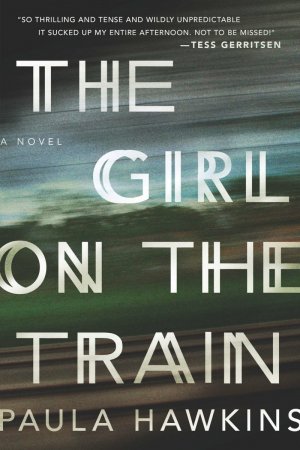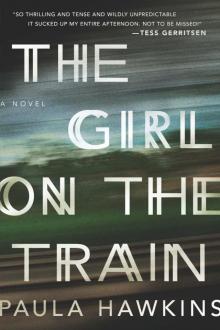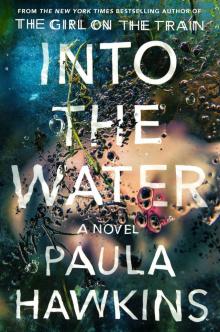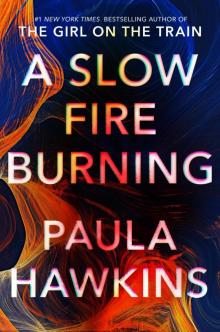- Home
- Paula Hawkins
Into the Water Page 14
Into the Water Read online
Page 14
ERIN
Josh was sitting on the pavement opposite the house as we left. He watched us walking towards the car, crossing the road quickly once we’d got fifty yards or so down the street and disappearing into the house. The DI, in his own world, didn’t seem to notice.
“She wouldn’t rest until she saw Nel pay?” I repeated when we reached the car. “Does that not sound like a threat to you?”
Sean regarded me with his familiar, blank expression, his irritating look of not-really-there-ness. He said nothing.
“I mean, doesn’t it seem odd that Lena wouldn’t even mention that to us? And Josh? That business about them all being asleep? It was such an obvious lie . . .”
He nodded curtly. “Yes. It seemed so. But I wouldn’t set too much store by the tales of grieving children,” he said quietly. “There’s no telling what he’s feeling or imagining, or what he thinks he should or shouldn’t be saying. He knows that we know that his mother bore a grudge against Nel Abbott, and I imagine he’s afraid that she’s going to be blamed, that she’s going to be taken away from him. You have to think about how much he’s already lost.” He paused. “As for Lena, if she truly was as hysterical as Louise suggests, she may not even remember the incident clearly; she may remember very little other than her own distress.”
For my part, I was finding it difficult to marry Louise’s description of Lena that day—a howling, wounded beast—with the usually self-contained and occasionally venomous girl we had encountered. It seemed bizarre to me that her reaction to her friend’s death would be so extreme, so visceral, when her reaction to her mother’s was so restrained. Was it possible that Lena had been so affected by Louise’s grief, by Louise’s conviction that Nel was to blame for Katie’s death, that she had come to believe it herself? A prickle ran over my skin. It didn’t seem likely, but what if, like Louise, Lena blamed her mother for Katie’s death? And what if she decided to do something about that?
LENA
Why do adults always ask the wrong questions? The pills. That’s what they’re all on about now. Those stupid fucking diet pills—I’d forgotten I even bought them, it was so long ago. And now they’ve decided that THE PILLS ARE THE ANSWER TO EVERYTHING and so I had to go to the police station—with Julia, who is my appropriate adult. That made me laugh. She’s, like, the least appropriate adult possible for this particular situation.
They took me into a room at the back of the police station that was not like what you see on television; it was just an office. We all sat around a table and that woman—DS Morgan—asked the questions. Mostly. Sean asked some, too, but mostly it was her.
I told the truth. I bought the pills on Mum’s card because Katie asked me to, and neither of us had any clue that they were bad for you. Or I didn’t, in any case, and if Katie did she never said anything to me about it.
“You don’t seem particularly concerned,” DS Morgan said, “that they might have contributed to Katie’s negative state of mind at the end of her life?”
I nearly bit through my tongue. “No,” I told her, “I’m not concerned about that. Katie didn’t do what she did because of any pills.”
“So why did she?”
I should have known she’d seize on that, so I kept talking. “She didn’t even take that many. A few, probably not more than four or five. Count the pills,” I said to Sean. “I’m pretty sure the order was for thirty-five. Count them.”
“We will,” he said. Then he asked, “Did you supply pills to anyone else?” I shook my head, but he wouldn’t leave it at that. “This is important, Lena.”
“I know it is,” I told him. “That was the only time I bought them. I was doing a favour for a friend. That was all it was. Honestly.”
He leaned back in his chair. “All right,” he said. “The thing I’m struggling to understand is why Katie would want to take pills like that at all.” He looked at me and then at Julia, as though she might know the answer. “It’s not as though she was overweight.”
“Well, she wasn’t thin,” I said, and Julia made a strange noise, like a cross between a snort and a laugh, and when I looked at her, she was looking back at me like she hated me.
“Did people say that to her?” DS Morgan asked me. “At school? Were there comments made about her weight?”
“Jesus!” I was finding it so hard not to lose my temper. “No. Katie wasn’t being bullied. You know what? She used to call me skinny bitch all the time. She used to laugh at me, because, you know . . .”—I got embarrassed because Sean was looking right at me, but I’d started, so I had to finish—“because I’ve got no boobs. So she called me skinny bitch and sometimes I replied with fat cow, and neither of us meant it.”
They didn’t get it. They never do. And the problem was, I couldn’t explain it all properly. Sometimes I didn’t even understand myself, because although she wasn’t thin, it really didn’t bother her. She never talked about it the way the others did. I’ve never had to try, but Amy and Ellie and Tanya did. Always low-carbing or fasting or purging or whatever the fuck. But Katie didn’t care, she liked having tits. She liked the way her body looked, or at least she always used to. And then—I honestly don’t know what it was—some stupid comment on Insta or a dumb remark from some Cro-Magnon at school and she got weird about it. That was when she asked me for the pills. But by the time I’d got them, she seemed to be over it—and she said they didn’t work anyway.
I thought the interview was over. I thought I’d made my point, and then DS Morgan went off on a completely different tangent, asking me about the day Louise came round just after Katie died. I was like, yes, of course I remember that day. It was one of the worst days of my life. I still get upset just thinking about it.
“I’ve never seen anything like that,” I told them, “like the way Louise was that day.”
She nodded, then she asked—all earnest, all concerned, “When Louise said to your mother that she wouldn’t rest until she saw Nel pay, how did you take that? What did you think she meant by that?”
I lost it then. “She didn’t mean anything, you fucking moron.”
“Lena.” Sean was glaring at me. “Language, please.”
“Well, I’m sorry, but for God’s sake! Louise’s daughter had just died, she didn’t even know what she saying. She was crazy.”
I was ready to leave, but Sean asked me to stay. “I don’t have to, though, do I? I’m not under arrest, am I?”
“No, Lena, of course you’re not,” he said.
I spoke to him, because he understood. “Look, Louise wasn’t serious. She was totally hysterical. Off her head. You remember, don’t you? What she was like? I mean, of course she was saying all sorts of things, we all were, I think we all went a bit mad after Katie died. But for God’s sake, Louise didn’t hurt Mum. Honestly, I think if she’d had a gun or a knife that day, maybe she would have. But she didn’t.”
I wanted to tell the whole truth. I really did. Not to the woman detective, not even to Julia, really, but I wanted to tell Sean. But I couldn’t. It would have been a betrayal, and after everything I’d done, I couldn’t betray Katie now. So I said all I could. “Louise didn’t do anything to my mother, OK? She didn’t. Mum made her own choice.”
I got up to go, but DS Morgan wasn’t done yet. She was looking at me, this strange expression on her face, like she didn’t believe a word I’d been saying, and then she said, “You know what strikes me as odd, Lena? You don’t seem remotely curious as to why Katie did what she did, and why your mother did what she did. When someone dies like this, the question everyone asks is why. Why would they do that? Why would they take their own lives when they have so much to live for? But not you. And the only reason—the only reason—I can think of for that, is because you already know.”
Sean took me by the arm and led me from the room before I could say anything.
LENA
Julia wanted to drive
me home, but I told her I felt like a walk. It wasn’t true, but a) I didn’t want to be in the car alone with her, and b) I saw Josh, on his bike, across the road, going round and round in circles, and I knew he was waiting for me.
“’Sup, Josh?” I said when he came riding over. When he was about nine or ten, he started saying “’Sup?” to people instead of hello, and Katie and I never let him forget it. Usually he laughs, but this time he didn’t. He looked frightened. “What’s wrong, Josh? What’s happened?”
“What were they asking you about?” he said in this little whispery voice.
“It’s nothing, don’t worry. They found some pills that Katie took and they think that they—the pills, I mean—might have something to do with . . . what happened. They’re wrong, obviously. Don’t worry.” I gave him a little hug and he pulled away, which he never does. Usually he’ll use any excuse to have a cuddle or hold my hand.
“Did they ask you about Mum?” he said.
“No. Well, yeah, I suppose. A little. Why?”
“I don’t know,” he said, but he wouldn’t look at me.
“Why, Josh?”
“I think we should tell,” he said.
I could feel the first spots of warm rain on my arms and I looked up at the sky. It was deathly dark, a storm coming over. “No, Josh,” I said. “No. We’re not going to tell.”
“Lena, we have to.”
“No!” I said again, and I grabbed his arm more tightly than I meant to and he yelped like a puppy when you step on its tail. “We made a promise. You made a promise.” He shook his head and so I dug my nails into his arm.
He started to cry. “But what good does it do now?”
I let go of his arm and put my hands on his shoulders. I forced him to look at me. “A promise is a promise, Josh. I mean it. You do not tell anyone.”
He was right: in a way, we weren’t doing any good. There was no good to be done. But still, I couldn’t betray her. And if they knew about Katie, they’d ask questions about what happened afterwards, and I didn’t want anyone to know about what we did, Mum and I. What we did, and what we didn’t do.
I didn’t want to leave Josh like that, and I didn’t want to go home anyway, so I put my arm around him and gave him a comforting squeeze, and then I took his hand. “Come on,” I said to him. “Come with me. I know something we can do, something that’ll make us feel better.” He turned bright red and I started laughing. “Not that, you dirty boy!” He laughed, too, then, and wiped the tears from his face.
We walked in silence towards the southern end of town, Josh pushing his bike along beside me. There was no one about, the rain was coming down harder and harder and I could feel Josh sneaking the occasional glance across at me because my T-shirt was now totally see-through and I wasn’t wearing a bra. I crossed my arms over my chest and he blushed again. I smiled, but I didn’t say anything. In fact, we didn’t talk at all until we got to Mark’s road, and then Josh said, “What are we doing here?” I just grinned at him.
When we were outside Mark’s door he asked again, “Lena, what are we doing here?” He looked frightened again, but excited, too, and I could feel all the adrenaline rushing up inside of me, making me feel dizzy and sick.
“This,” I said. I picked up a stone from under the hedge and chucked it as hard as I could against the big window at the front of his house, and it went straight through, just making a small hole.
“Lena!” Josh yelled, anxiously looking around to see if anyone was watching. They weren’t. I grinned at him and picked up another stone and did it again, and this time it shattered the window and the whole pane came crashing down. “Come on,” I said to him, and I handed him a stone, and together we went round the whole house. It was like we were high on hatred—we were laughing and shouting and calling that piece of shit every name we could think of.
THE DROWNING POOL
2015
KATIE
On the way to the river, she stopped from time to time to pick up a stone or a piece of brick, which she put into her backpack. It was cold, not yet light, though if she’d turned back to look in the direction of the sea, she would have seen a hint of grey on the horizon. She did not turn back, not once.
She walked quickly at first, down the hill towards the centre of town, putting some distance between herself and her home. She didn’t head straight to the river; she wanted, one last time, to walk through the place she grew up in, past the primary school (not daring to look at it in case flashbacks to her childhood stopped her in her tracks), past the village shop, still shuttered to the night, past the green where her father had tried and failed to teach her to play cricket. She walked past the houses of her friends.
There was a particular house to visit on Seward Road, but she couldn’t quite bring herself to walk along it, so instead she chose another, and her pace slowed as her burden became heavier, as the road climbed back towards the old town, the streets narrowing between stone houses clad with climbing roses.
She continued on her way, north past the church until the road took a sharp turn to the right. She crossed the river, stopping for a moment on the humpbacked bridge. She looked down into the water, oily and slick, moving quickly over stones. She could see, or perhaps only imagine, the dark outline of the old mill, its hulking, rotting wheel still, unturned for half a century. She thought about the girl sleeping inside and laid her hands, bluish white with cold, on the side of the bridge to stop them from trembling.
She descended a steep flight of stone steps from the road to the riverbank path. On this track she could walk all the way to Scotland if she wanted to. She’d done it before, a year ago, last summer. Six of them, carrying tents and sleeping bags, they did it in three days. They camped next to the river at night, drank illicit wine in the moonlight, telling the stories of the river, of Libby and Anne and all the rest. She couldn’t possibly have imagined back then that one day she would walk where they had walked, that her fate and theirs were intertwined.
On the half mile from the bridge to the Drowning Pool, she walked slower still, the pack heavy on her back, hard shapes digging into her spine. She cried a little. Try as she might, she could not stop herself from thinking about her mother, and that was the worst, the very worst thing.
As she passed under the canopy of beech trees at the riverside, it was so dark she could barely see a foot in front of her, and there was comfort in that. She thought that perhaps she would sit down for a while, take off her pack and rest, but she knew that she couldn’t, because if she did, the sun would come up, and it would be too late, and nothing would have changed, and there would be another day on which she would have to get up before dawn and leave the house sleeping. So, one foot in front of the other.
One foot in front of the other until she reached the tree line, one foot in front of the other off the path, a little stumble down the bank, and then one foot in front of the other into the water.
JULES
You were making up stories. Rewriting history, retelling it with your own slant, your own version of the truth.
(The hubris, Nel. The fucking hubris.)
You don’t know what happened to Libby Seeton, and you certainly don’t know what was going through Katie’s head when she died. Your notes make that clear:
On the night of Midsummer’s Day, Katie Whittaker went into the Drowning Pool. Her footsteps were found on the beach at its southern edge. She wore a green cotton dress and a simple chain around her neck, a blue bird charm engraved “with love.” On her back, she carried a pack filled with bricks and stones. Tests carried out after her death revealed she was sober and clean.
Katie had no history of mental illness or self-harm. She was a good student, pretty and popular. The police found no evidence of bullying, either IRL or on social media.
Katie came from a good home, a good family. Katie was loved.
I was sitting cross-legged on
the floor in your study, leafing through your papers in the late-afternoon gloom, looking for answers. Looking for something. In amongst the notes—which were disorganized and in disarray, barely legible scribbles in the margins, words underlined in red or crossed out in black—there were pictures, too. In a cheap manila folder I found printouts on low-grade photography paper: Katie with Lena, two little girls grinning at the camera, not pouting, not posing, throwbacks to some distant innocent pre-Snapchat era. Flowers and tributes left at the edge of the pool, teddy bears, trinkets. Footprints in the sand at the edge of the pool. Not hers, I presume. Not Katie’s actual prints, surely? No, they must have been your version, a reconstruction. You followed in her footsteps, didn’t you? You walked where she walked, you couldn’t resist feeling what it felt like.
That was always a thing with you. When you were younger, you were fascinated by the physical act, the bones of it, the viscera. You asked questions: Would it hurt? For how long? What did it feel like, to hit water from a height? Would you feel yourself break? You thought less, I think, about the rest of it: about what it took to get someone to the top of the cliff or to the edge of the beach, and to propel them to keep moving.
At the back of the folder was an envelope with your name scrawled on the front. Inside was a note on lined paper, written in a shaky hand:
I meant what I said when I saw you yesterday. I do not want my daughter’s tragedy to become part of your macabre “project.” It’s not just that I find it repulsive that you would gain financially from it. I have told you time and time again that I believe what you are doing to be DEEPLY IRRESPONSIBLE and Katie’s death is PROOF OF THAT. If you had an ounce of compassion you would stop what you are doing now, accept that what you write and print and say and do has consequences. I don’t expect you to listen to me—you’ve shown no sign of doing so in the past. But if you continue down this path, I’ve no doubt that someday someone will make you listen.

 Girl on the Train
Girl on the Train The Girl on the Train
The Girl on the Train Into the Water
Into the Water A Slow Fire Burning
A Slow Fire Burning